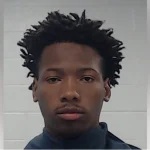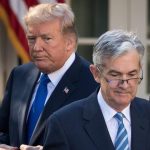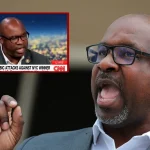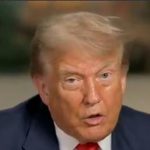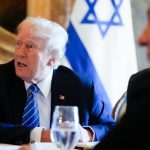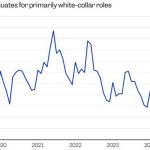(Photo / Alexander Tamargo)
The host of Univision’s upcoming town hall with former President Donald Trump had to previously defend his 2023 interview with the presidential candidate after liberals criticized it for being too “soft.”
Univision’s Enrique Acevedo is set to host two town halls, one with Trump on Oct. 8 and the other with Vice President Kamala Harris on Oct. 10. Acevedo previously interviewed Trump in November 2023 for more than an hour, asking about 40 questions, but faced harsh criticism from Democrats and the media for failing to fact check the former president in what they called a “softball” interview.
Following the interview, longtime Democrat operative Maria Cardona reacted to the interview, saying the network had worked to “mask the pernicious and dangerous politics that Donald Trump is going to implement if he becomes president again.” Raul A. Reyes, a contributor to NBC Latino and CNN Opinion, argued that the “softball” interview was a betrayal of its Latino audience. Democratic California State Sen. Susan Rubio told the Los Angeles Times that she was “appalled” that Acevedo let Trump “continue to spew lies and go unchecked.”
Amid the backlash, Acevedo wrote an op-ed in The Washington Post in defense of his interview — which he noted was the first with a current or former Republican president on the network in 22 years.
“Amid intense partisanship with clearly delineated camps, my interview with Trump wasn’t crafted to convince Democrats or my colleagues in the press that Trump is an unsuitable choice. Instead, its purpose was to afford conservative Latinos the opportunity to hear directly from him without confrontation or hostility,” Acevedo wrote.
Acevedo responded to other critiques regarding his lack of fact checking during the interview.
“Some critics argue that tactic allowed Trump to repeat false claims about the 2020 election, the nature of his legal issues and President Biden’s reputation. No, I didn’t fact-check statements live that have already been debunked repeatedly, and were debunked again after our conversation aired; what would have been the point in blowing up the conversation to do so? I would have become a protagonist instead of letting relevant information serve that role,” he wrote. The Univision host added that he believes confrontation in interviews has its downsides.
In the 2024 election cycle, Trump and Harris have noticeably different media strategies. Harris waited until more than a month into her presidential campaign before she had her first sit-down interview. For her first sit-down, which was with CNN’s Dana Bash, Harris was accompanied by her running mate, Democratic Minnesota Gov. Tim Walz.
Since, the vice president has stuck to doing some infrequent local media appearances though doing her first national sit-down interview with MSNBC’s Stephanie Ruhle, who defended Harris’s lack of “clear and direct answers.”
Trump, by comparison, has made a variety of media appearances, frequently doing podcasts and interviews. Both Harris and Trump sat down for an interview with the National Association of Black Journalists, but while the vice president faced a friendly crowd of journalists who asked her about the importance of joy to her campaign, the former president walked into a more hostile and tense round of questioning.
The town halls come as Trump and Harris are not expected to take the debate stage again. The two faced off Sept. 10 on ABC News, during which the moderators only fact checked Trump and failed to correct Harris throughout the debate.
“I believe as journalists, we are uniquely responsible for elevating the conversation, cutting through the noise and providing a platform for perspectives that question even our preconceptions. This is particularly crucial in an era marked by polarization and historically diminished public trust in the news media,” Acevedo wrote in 2023 in defense of his interview. “True journalistic integrity lies not in sensationalism, but in fostering a space for diverse perspectives to be explored, offering the audience a deeper examination of critical actors beyond the confines of public caricature.”



